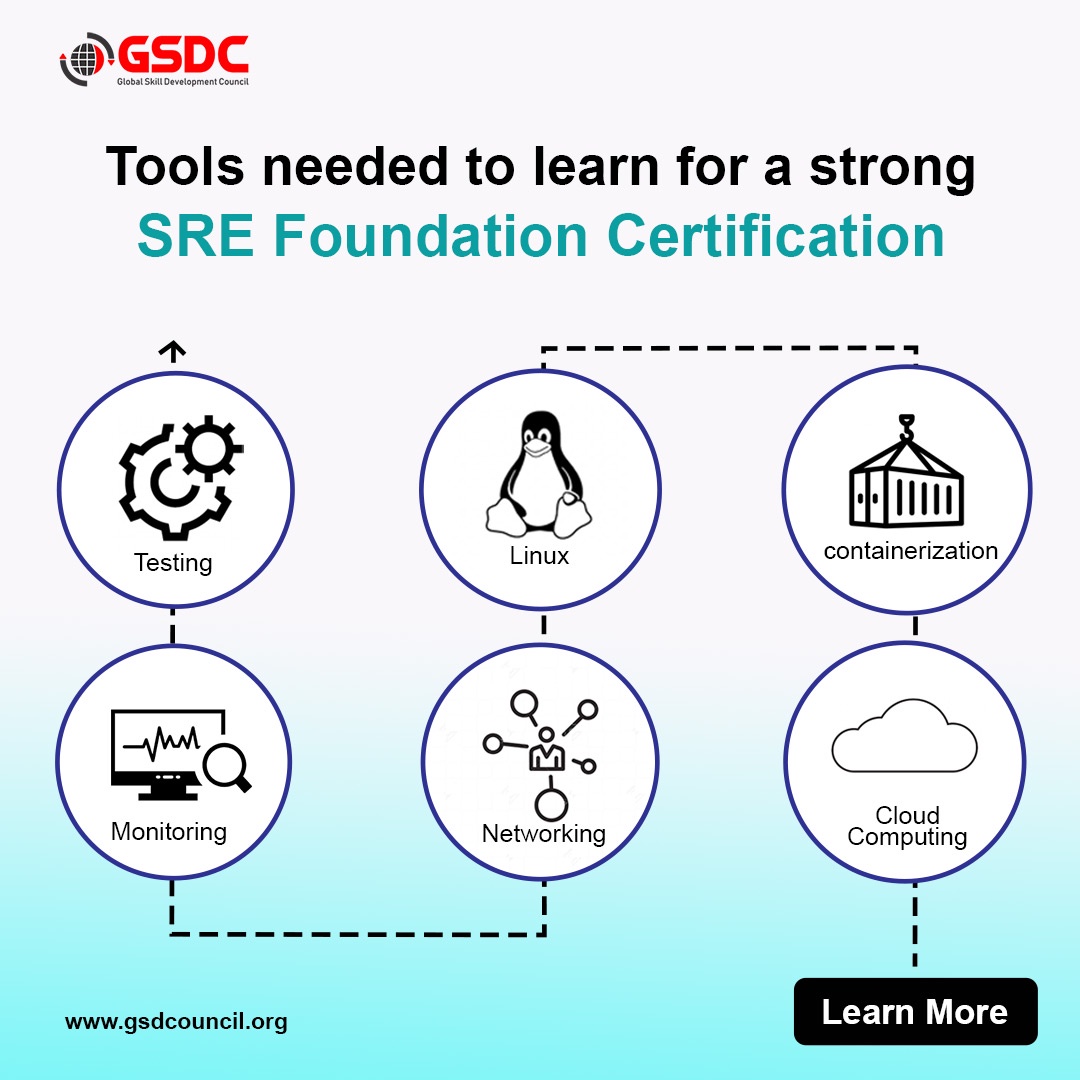Through SRE Certification, people can explore the historical background of SRE's emergence, learn the fundamental concepts guiding reliability engineering, and gain a thorough understanding of the relationship between SRE and DevOps. They can also develop practical skills in using tools and automation techniques that are necessary for maintaining highly reliable systems. These skills and knowledge are essential to guaranteeing the performance, robustness, and stability of contemporary IT infrastructures.
Site Reliability Engineer Certification equips individuals with knowledge about various tools and automation techniques used in the field. This includes understanding and implementing automation for tasks related to deployment, monitoring, incident management, and configuration management. It covers popular tools such as Prometheus, Grafana, Kubernetes, Terraform, and others relevant to SRE practices.
Here's an explanation of each of the tools or concepts that are important to learn for a strong foundation in Site Reliability Engineering (SRE) and to prepare for the SRE Foundation Certification:
Linux:
Linux is a fundamental operating system widely used in the IT industry. SREs often work with Linux-based systems, so understanding basic Linux commands, file systems, and administration is crucial.
Networking:
Networking knowledge is essential for understanding how systems communicate. Familiarity with networking protocols, IP addressing, subnets, firewalls, and load balancing is important for SREs working on system reliability and performance.
Cloud Computing:
Cloud platforms like AWS, Azure, and Google Cloud are integral to modern IT infrastructures. SREs need to understand cloud services, deployment models, and how to optimize systems for cloud environments.
Containerization:
Containers, often managed by tools like Docker, are crucial for building and deploying scalable and consistent applications. Understanding containerization concepts and tools is valuable for SREs working on resilient and scalable systems.
Automation:
Automation is a core principle in SRE. Learning automation tools like Ansible, Puppet, or Chef is essential for automating routine operational tasks, ensuring consistency, and reducing the risk of human error.
Monitoring:
Monitoring tools like Prometheus, Grafana, Nagios, and others are essential for tracking system performance, detecting issues, and ensuring that systems meet Service Level Objectives (SLOs). SREs need to be proficient in setting up and utilizing monitoring systems.
Testing:
Testing is crucial for ensuring the reliability of systems. SREs need to understand testing methodologies, including unit testing, integration testing, and chaos engineering. Tools like Selenium for automated testing and tools for chaos engineering are relevant.
Remember, while these tools are important, it's equally vital to understand the underlying principles of reliability engineering, such as error budgets, Service Level Objectives (SLOs), and blameless post-mortems. Practical hands-on experience with these tools in real-world scenarios is also valuable for a strong foundation in SRE. Additionally, the specific tools used may vary based on the organization and its tech stack.


No comments yet